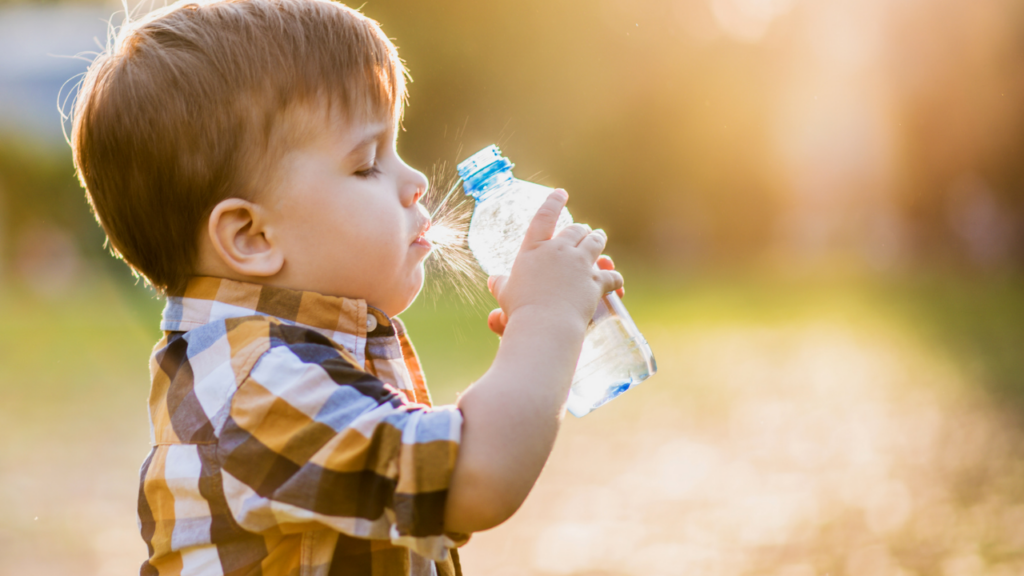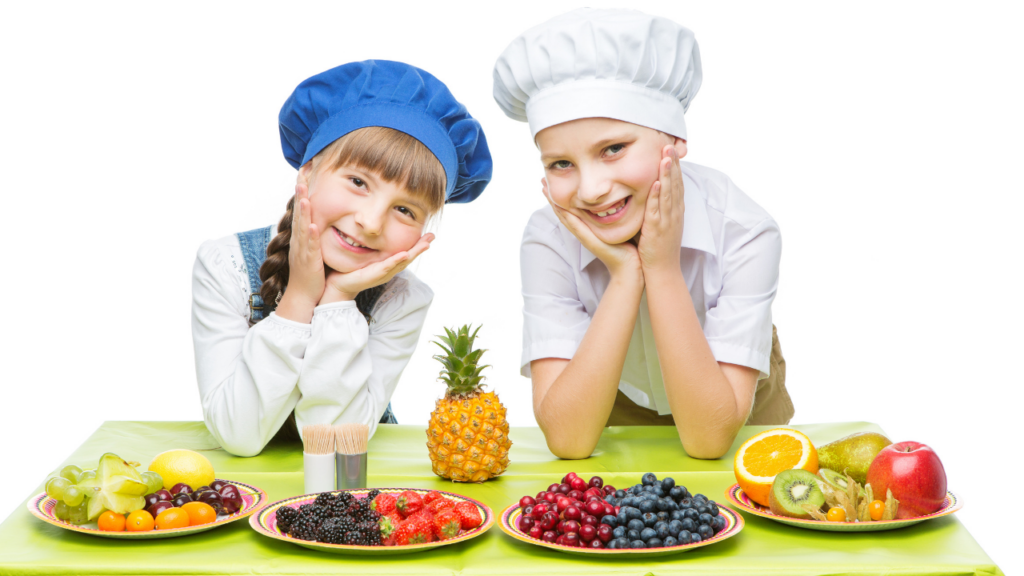Exercise Daily – When you are having a movie night with the family, it is only natural to make some popcorn and distribute it to the children. But the question is, when can kids have popcorn?
Undoubtedly, while we are having a good time, one of the foods that we most often consume is popcorn. However, is it genuinely healthy for children to consume popcorn? When is it okay for children to eat popcorn?
There are a lot of parents who aren’t aware of the risks associated with their young children eating popcorn.
It does not get as much attention as the risks associated with eating hot dogs, which accounted for 17 percent of food-related asphyxiations among children less than 10 years of age in a survey across 41 states.
When it comes to younger children consuming popcorn, though, there is a risk of their choking or aspirating the kernels. As a result, it is strongly suggested that children wait until they are at least four years old.
Why Infants and Young Children are More Prone to Choking and Aspiration than Older Children and Adults?
There are a lot of different things that might raise someone’s chances of choking or aspirating anything. Anatomically speaking, infants and toddlers are at a disadvantage since they have much smaller airways that are more susceptible.

They also have underdeveloped chewing mechanisms, which means they may not be able to adequately grind some meals. Because of their immature reflexes and lack of physical strength, infants and toddlers are less capable of rescuing themselves from dangerous situations.
So, when can kids have popcorn?
The amount of risk is also substantially impacted by a child’s developmental stage as well as their eating behavior. In terms of their level of development, a child who is 10 months old has a far higher risk than a child who is 3 years old of choking on their food.
On the other hand, this may not be the case if the 3-year-old was roaming about while eating and the 10-month-old was sitting and being watched carefully in a high chair. In such a scenario, the eating pattern of the child who is 3 years old might be cause for worry.
What are the top ten foods that have been linked to fatal cases of airway obstruction?
The 10 meals most usually related with deadly airway blockage were identified using data collected from 48 children’s hospitals located all around the globe. They are as follows:
- Hot dogs
- Candies that aren’t chewy or liquid-filled
- Nuts
- Grapes
- Meat
- Cookies and biscuits
- Carrots
- Apples
- Popcorn
- Peanut butter
It is the special qualities of these foods that make them a threat to young children. For example, “foods that are tiny, smooth, or slippery when moist” may pass through to the throat without chewing.
Since these characteristics make the meal easier to swallow, they are dangerous for children. When they get lodged, spherical and/ or compressible meals have a tendency to obstruct the passage of air. This increases the risk of choking.
However, round foods are not the only kind of food that may induce choking. Popcorns and many other foods can! It’s important to know when can kids have popcorn exactly.
Why Should Children Younger Than 4 Years Old Not Eat Popcorn?
Risk of Choking
A person is said to be choking when anything foreign becomes trapped in the throat or windpipe. Hence, it prevents normal breathing and the delivery of oxygen to the brain.
Young children should not consume popcorn because it contains kernels, which may cause choking if they are not properly supervised when eating it. These very tough kernels may be found entire or just partially popped.
Children under the age of four are regarded to be immature chewers because they lack back molars. These molars are necessary to break down the kernels enough to make it safe for them to be swallowed.
As a result, these tough and slippery kernels have the potential to slide directly down the throat. And, this is where they may get trapped.
Risk of Aspiration
Aspiration is a condition that happens when foreign items are breathed in via the windpipe or lungs. Normally, they should go down into the esophagus, where they would normally be digested. This leads to difficulty breathing as well as diseases like pneumonia.
The aspiration of foreign particles is the greatest cause of unintentional mortality in children under the age of four years. In point of fact, it is responsible for the deaths of more than one hundred youngsters each year.
Hence, when you ask a pediatrician about when can kids have popcorn, they might suggest after the age of 4.
Even though it is the top cause of mortality in children under the age of 4, the children notably under the age of 3 who are at the most risk of aspiration are the ones to watch out for.
Peanuts are the food that causes aspiration the most often, followed by meats, sunflower seeds, popcorn, and carrots. Because popcorn kernels are so tiny and dry, it poses a risk of aspiration because the kernels may be readily ingested.
Safe Snacks For Children Under 4 Years
You may be having second thoughts about what you give your child to eat, now that you are aware of the significant dangers of foods like popcorn and other foodstuffs. Because of this, we feel it is important to discuss healthy snacks for toddlers.

Some examples of healthy snacks are:
- Strawberries, apple, peach, pear, banana, and nectarine, cut as thinly as possible
- Sliced or mashed grapes, cherries, and plums in addition to whole plums and cherries (also pitted)
- Avocado cut into cubes or slices.
- Yogurt
- Cheese that has been grated or diced
- Crisps made from whole grains
- Cereals made with whole grains
- Hard-boiled eggs
- Canned tuna
- Scrambled eggs
- French toast
Behaviors That Are Safe For Eating
Even if you just offer your kid foods that are considered to be “safe,” the way in which they eat might still place them at an elevated risk of choking. It is suggested that youngsters eat only while they are sitting quietly (preferably at a table).
The same goes for when can kids have popcorn! They should be taught to chew their food slowly and completely rather than rushing through it in order to save time.
While consuming food, it is not safe to engage in activities such as running, walking, climbing, or crawling. Even activities as seemingly harmless as talking and laughing might carry some danger.
As for what you can do, it is recommended that you learn how to provide early treatment if your child does begin to choke and that you always supervise your little one while they are eating. If your child does begin to choke, it is important that you learn how to provide early treatment as soon as possible.
Healthy Snacks For Your Kids
Yogurt
Because it contains a high amount of protein as well as calcium, yogurt makes for an ideal option for a snack for children. Calcium is particularly crucial for the growth and development of children’s bones. Additionally, many yogurts include live bacteria, which is beneficial to the digestive system.
Nuts
Nuts include a high concentration of beneficial fats, in addition to fiber and antioxidants. It’s essential for children’s development to have enough fat in their diet.
Cottage Cheese
Cottage cheese is a soft, fresh, and creamy cheese that is suitable for newborns. It is an excellent source of protein, selenium, vitamin B12, and calcium. Vitamin B12 is essential for children’s appropriate growth and brain development.
Oatmeal
Oatmeal is a nutritious breakfast for children and a delicious snack. In addition to numerous health advantages, oats are rich in soluble fiber, which raises the number of healthy bacteria in the digestive system.
Frozen fruit popsicles
Frozen fruit popsicles are a healthy and delicious treat for children. The majority of popsicles sold in stores include artificial flavors, refined sugar, or high-fructose corn syrup. However, it is simple to build your own, and your children may enjoy participating.
In a blender, combine frozen fruit or berries with a tiny bit of fruit juice. The ingredients should be poured into popsicle molds or tiny plastic cups. Insert a popsicle stick through the foil and cover the popsicles with aluminum foil. Freeze overnight.
Peanut butter
If you are still unsure about when can kids have popcorn, peanut butter can be a good alternative. Peanut butter is an excellent method to provide your youngster with nutritious fats and protein.
Raisins
Raisins are dried grapes. They include almost all of the nutrients that can be found in fresh grapes, but they come in a more compact container.
Raisins have a sufficient quantity of mineral iron, which is deficient in the diets of a great number of young infants. Iron is essential for the transportation of oxygen throughout the body.
In addition, raisins contain a variety of plant chemicals, one of which is called oleanolic acid. It may help prevent cavities in your child’s teeth by preventing germs from attaching to the teeth. Raisin snack packs are a convenient option for a grab-and-go snack that is very nutritious.
Frequently Asked Questions
Is a 2 year old allowed popcorn?
Toddlers often move about while eating and have the tendency to cram food into their mouths. Therefore, they are at an increased risk of choking. Hence, parents adhere to the advice given by the AAP and keep popcorn out of the reach of children.
Is popcorn a choking hazard for 3 year olds?
It is recommended by the American Academy of Pediatrics that children should not consume popcorn until they are at least four years old. It poses a risk of choking and should not be consumed before that age.
Children of this age should be able to successfully chew and swallow popcorn without choking or other complications.
Is popcorn healthy for toddlers?
Popcorn has the potential to be a nutritious snack for children so long as it is not loaded down with bad toppings. Make your own popcorn using an air popper, then drizzle it with some melted butter. You can finish it off with some grated Parmesan cheese.
However, exercise extreme care when giving popcorn to smaller children since it poses a risk of choking if the kernels are too large. Ask your child’s doctor when can kids have popcorn.
How do I know if my child aspirated popcorn?
- Weak sucking
- Problems swallowing or choking when being fed
- Other indications of a problem with nutrition include a flushed face, wet eyes, or facial creases and wrinkles.
- Having a pause in breathing while being fed
- Increased rate of respiration when consuming.
- After being fed, a voice or breathing pattern that sounds moist
What are choking hazards for toddlers?
- Whole kernels of corn, either cooked or uncooked
- Cherry or grape tomatoes that have not been sliced
- Uncooked carrots or apples cut into chunks are some examples of raw vegetables and fruits that fall under this category
- Whole bits of fruit that have been canned
- Grapes, berries, cherries, and melon balls that have not been sliced
- Uncooked vegetables or fruits that have been dried, such as raisins
Conclusion
It is just not worth it to provide popcorn to children under the age of 4 since it is one of the top 10 foods that are related to deadly airway blockage. Both choking and aspirating one’s own breath are very serious risks.
When your kid is choking, it is imperative that whatever is in their mouth also comes out of their mouth. Otherwise, it’s possible that you won’t realize your kid has swallowed part of what they were choking on until it’s too late.
If you have any reason to suspect that your kid may have aspirated food while they were eating, please take them to the hospital as soon as possible. Talk to a good pediatrician about when can kids have popcorn before you start giving them.




